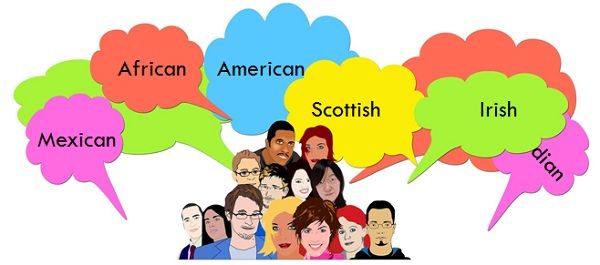 The total world population is about 8 billion, which composed of people belonging to different groups, cultures, nations, races, etc. Based on the nationality and ethnicity, a person can be easily identified, i.e. to which country or ethnic group he/she belongs. Nationality implies the place of a person’s birth, so it is simply the national identity of an individual. On the other hand, the ethnicity reflects the cultural and ancestral identity of a person.
The total world population is about 8 billion, which composed of people belonging to different groups, cultures, nations, races, etc. Based on the nationality and ethnicity, a person can be easily identified, i.e. to which country or ethnic group he/she belongs. Nationality implies the place of a person’s birth, so it is simply the national identity of an individual. On the other hand, the ethnicity reflects the cultural and ancestral identity of a person.
Nationality is used to determine to which country a person belongs, whereas ethnicity describes the social group to which a person belongs. The article will make clear the meaning and differences between two, so have a look.
Content: Ethnicity Vs Nationality
Comparison Chart
| Basis for Comparison | Ethnicity | Nationality |
|---|---|---|
| Meaning | Ethnicity refers to the person's identity in relation to the social, cultural or religious group. | Nationality connotes membership of a person, in the country, describing his/her connection with the political state. |
| Basis of identification | Language, religion, culture, race etc. | Birth or inheritance |
| Represents | Heritage and ancestry | Legal status |
| Arises from | Ethnic background | Geographical location |
Definition of Ethnicity
Ethnicity can be understood as the inherited status depending on the society in which a person resides. It is the state of belonging to a subgroup of the population, sharing similar physical or social attributes. In other words, Ethnicity is the ethnic identity of a person which is ascertained by descent-based characteristics. Descent-based characteristics connote the traits which are connected to descent, i.e. genetically acquired traits and cultural or historical inheritance.
Ethnicity is the category of people, called as an ethnic group, who consider themselves as distinct from others on the basis of ancestral, social and national heritage. People belonging to this group share common traditions, history, language or dialect, culture, behaviour, religion, physical appearance and similar other factors like geographical affiliation to a particular place, dressing style, food, beliefs, etc.
For example: In India, the total population of 1.2 billion, is a mix of people belonging to various ethnic groups, such as Bengali, Punjabi, Marathi, Rajasthani, Assamese, Bihari, and so on.
Definition of Nationality
Nationality is defined as the status emerging from the fact of an individual’s nation of origin. It is the feature of person’s individuality, as a result of his/her membership in a nation.
In other words, nationality means the identity of a large group of people having a legal connection and personal allegiance to a specific place, because of being born there. It indicates the country, where the individual is from and is the legal citizen. For example: Indian, American, British, Canadian, South African, Mexican, etc.
Nationality law deals with its provision and sets the conditions for obtaining nationality. However, it can be acquired by birth, inheritance or naturalisation. It bestows the state, authority over the person and confers the person, protection of the state. The rights and powers of the state and its nationals may vary from country to country. It is psychological and thus provides the source for patriotism and self-sacrifice.
Key Differences Between Ethnicity and Nationality
The difference between ethnicity and nationality can be drawn clearly on the following grounds:
- Ethnicity denotes the person’s ethnic identity, on the basis of descent attributes and cultural inheritance. On the other hand, nationality is the person’s membership in the nation, which reveals the individual’s relationship with the nation.
- The ethnicity of a person can be determined by his/her dialect, culture, food habits, dressing style, race, physical appearance and so on. As against this, the nationality of a person can be determined by his/her country of origin.
- Ethnicity is the state describing the heritage and ancestry. Conversely, Nationality is the legal identity, which is conferred only to a person who is born in the country.
- While ethnicity arises from a person’s ethnic background, nationality is dominated by the geographical location.
Conclusion
So, you might have gained ample knowledge about ethnicity and nationality from the points mentioned above. Both these two have a great role to play in identity formation and development. In simple terms, nationality is the identity of a person’s nation where he/she has taken birth, while ethnicity is the identity of a subgroup to which he/she comes from. People of the same nation can have a different ethnicity, as we discussed in our first example and likewise, people of the same ethnicity can belong to different nations.






CRS says
My father was ethnically Gujarati, born in British India,, moved to British colony and protectorate of Kenya. I was born in Kenya. I moved to UK. Naturalised as a citizen of UK.
What is my ethnicity, nationality and citizenship.
My son was born in India, moved to UK, registered as UK citizen. He moved to Switzerland. His son was born in Switzerland and is a citizen of Switzerland. What are the ethnicity, nationality and citizenship of my son and grandson.